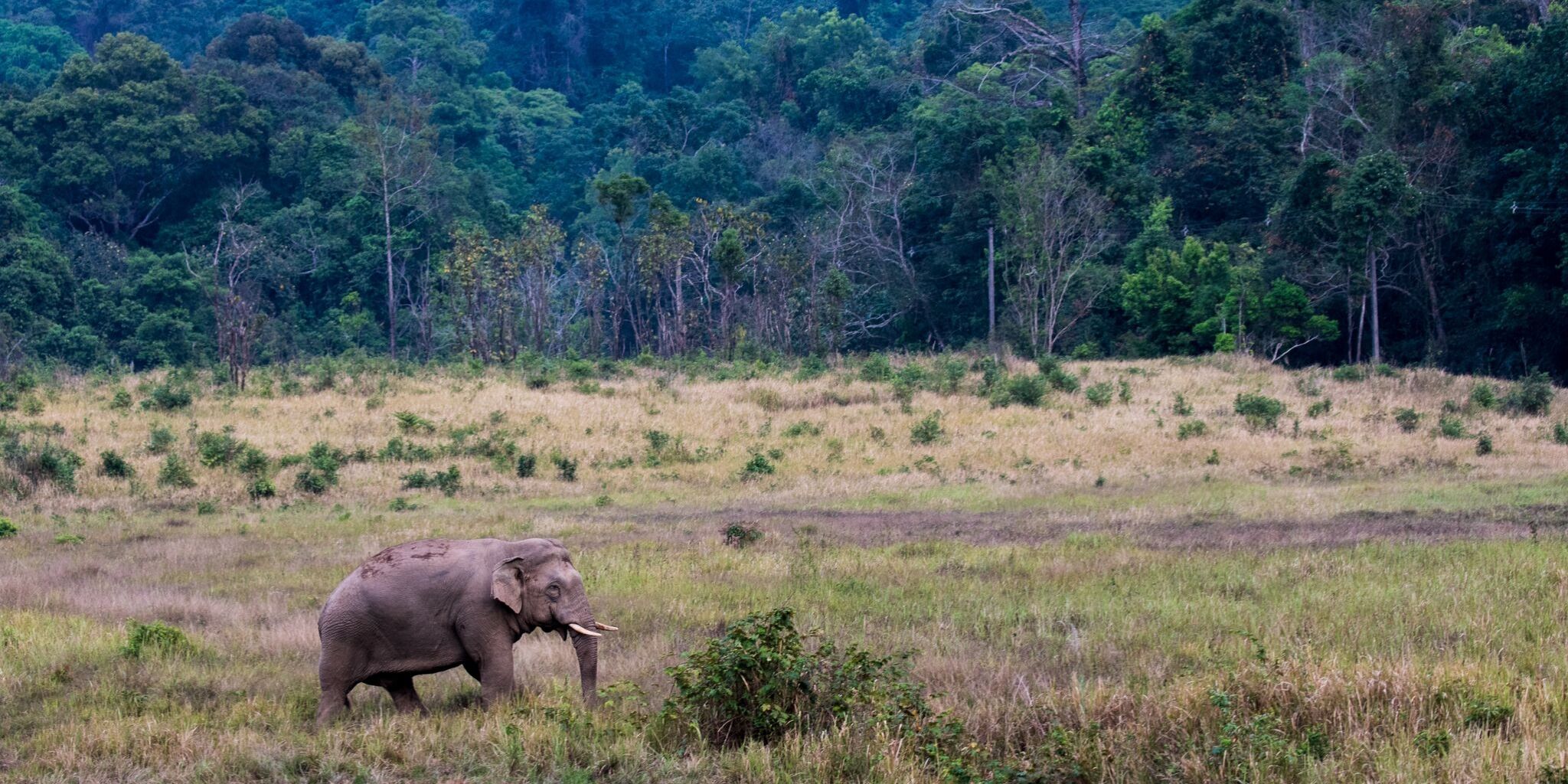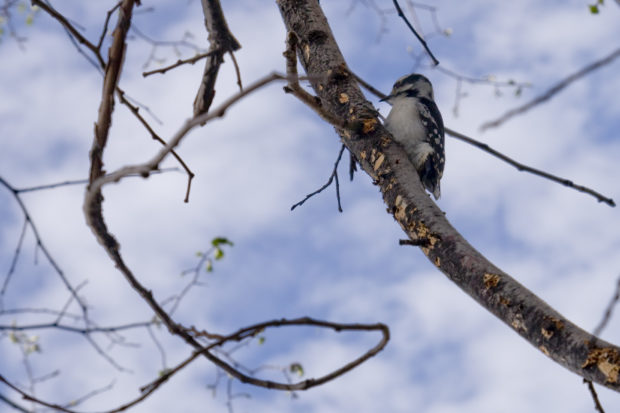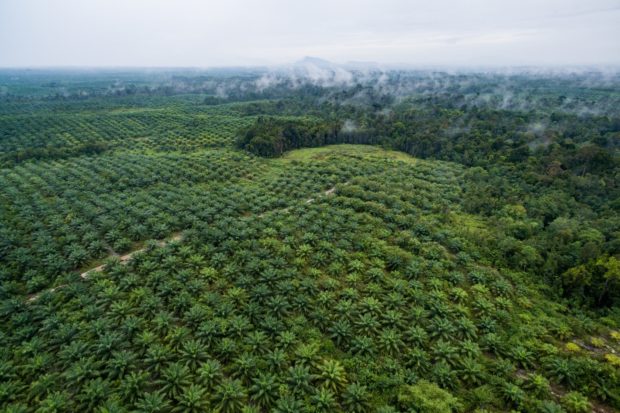We have much more to do and your continued support is needed now more than ever.
New York Declaration on Forests: How One International Declaration is Tackling Deforestation

Forest habitats are home to countless endangered species, ranging from the red-cockaded woodpeckers of Alabama’s longleaf pine forests to the Asian elephants living in tropical forests in Thailand. Many species are threatened by the massive destruction and deforestation that stems from unsustainable agricultural practices, and to combat this, a group of governments, corporations, indigenous communities, and non-governmental organizations created the New York Declaration on Forests.
Launched in 2014 at the United Nations Climate Summit, theNew York Declaration on Forests (NYDF) is a voluntary and non-binding international declaration calling for action to halt global forest loss, increase forest restoration, improve forest governance, and empower local communities. It has since grown to over 200 endorsers, including national and subnational governments, multinational companies, indigenous communities, and non-governmental organizations.
A new report released by leading research institutes and civil society organizations to provide updates on the progress of the New York Declaration on Forests finds that unsustainable agricultural practices continue to contribute to deforestation, one of the largest threats to environmental and human health, despite widespread corporate commitments to halt forest loss. Two-thirds of global deforestation is driven by agricultural production.

The Five Year Progress Assessment of the New York Declaration on Forests highlights that we are still far from the goals of halving the rate of natural forest loss by 2020 and meeting the private-sector goal of eliminating deforestation from the production of major agricultural commodities such as palm oil, soy, paper, and beef. Since 2014, the rate of tree cover loss has increased, and between 2014 and 2018, we lost an area roughly the size of Michigan every year. Of particular concern are increasing deforestation rates of tropical primary (i.e. undisturbed) forests, which are very effective carbon sinks and have countless biodiversity implications. The Congo Basin, which falls within one of NYDF’s endorsing countries, the Democratic Republic of Congo, is home to 10,000 species of tropical plants and species like forest elephants, chimpanzees, and bonobos. The Five Year Progress Assessment articulates the value of primary forests to highlight the importance of employing a concerted effort to preserve primary forests and restore natural forests.
Currently, none of the 350 most influential companies with forest-relevant operations are on track to meet their 2020 commitments to deforestation-free supply chains, and finance is still woefully inadequate given forests’ oversized role in contributing to global climate change mitigation efforts. Indeed, natural climate solutions, including tropical forest conservation and reforestation, could represent almost 40 percent of the near near-term climate solution. Tools and resources, like the Accountability Framework Initiative (AFi), have been developed to establish, implement, and monitor ethical supply chain commitments in agriculture and forestry. AFi helps define what constitutes a forest and deforestation, provides guidance of exactly what companies need to publicly report, and explains how to accomplish goals while respecting the rights of indigenous peoples and local communities. In its recently released call to action, AFi calls on companies to apply its framework to eliminate ecosystem destruction and human rights violations from their commodity supply chains. By bringing greater clarity, consistency, and effectiveness to the implementation of these commitments, the Accountability Framework provides a roadmap for companies and others to help them accelerate progress and improve accountability on their ethical supply chain journey.
The report lays out the status of each of the NYDF’s ten goals, and highlights what actions are needed to get us on track to achieving deforestation-free supply chains. The United Nations Secretary General’s 2019 Climate Summit is rapidly approaching. This report provides a critical wake-up call as world leaders, conservation experts, youth and adult climate activists convene in New York and elsewhere around the world to discuss some of the most pressing climate issues of our time.

Indonesia and Malawi are examples of the promise that efforts in reducing deforestation are currently showing. In 2011, the Indonesian government issued a moratorium on new concessions in primary forests and peatlands for palm oil, timber, and logging industries, which significantly curbed the effects of the rampant destruction that these industries were having on the country’s forests. Government initiatives, coupled with improvements in local forest management and efforts by companies to reduce deforestation, have led to a sharp decline in forest loss in Indonesia over the past two years. This progress, however, is being threatened by the uptick in fires that Indonesia has been experiencing over the last few months. As of this year, over 800,000 acres of land have been burned, imperiling local wildlife by creating immense clouds of smoke and destroying habitats. Local efforts, in coordination with those put forth by the Indonesian government are working to curb the fires, but all eyes are on Indonesia to serve as an example of how to continue sustainable agricultural practices and prevent further spread of fires.
Malawi, on the other hand, is concerting its reforestation efforts with economic growth and social improvement. The Malawian government has adopted a National Charcoal Strategy to promote alternative cooking and cook stoves, as well as sustainable wood fuel harvesting and charcoal production. The government also plans to utilize cash-for-work programs and incentivized grants, as well as other measures, to promote economic growth and restoration efforts.

What does it mean for global wildlife if we do not stop the trend of deforestation? We might witness some of our most cherished species disappear. While unsustainable agricultural practices are some of the leading causes of global deforestation, the New York Declaration on Forests’ Five Year Progress Assessment serves as a useful reminder that there is no shortage of opportunity, resources, and examples to guide efforts for reducing deforestation.
For more information, please visit the NYDF Progress Assessment Report website.
Like what you read? Please consider making a donation to support our critical conservation work:





















